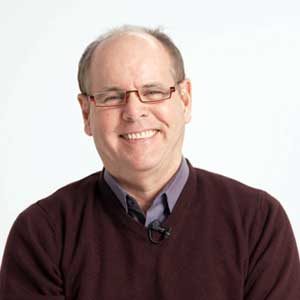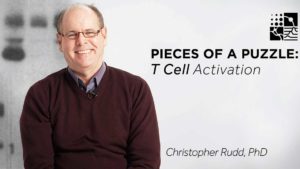Christopher E. Rudd, Ph.D. is a professor of medicine at the Université de Montréal where his research focuses on deciphering the signal transduction pathways in T-cells, and how these pathways control immune functions. He received his BSc from McGill University (Canada) and his Ph.D. and D.Sc. degrees from University College London (UK). Rudd began his studies on T-cell signaling while a faculty member at the Dana-Farber Cancer Institute (DFCI)/Harvard Medical School for 18 years in Boston and then later as a Professor at Cambridge University (UK).
His laboratory is credited with the discovery of the CD4 and CD8-p56lck complexes that initiate T-cell activation and a phosphorylation cascade involving key downstream targets. The CD4 and CD8-p56lck complexes initiate and broaden T-cell responses to most infectious agents. The discovery also provided a function for src kinases in normal receptor mediated signaling. Further, his work defined key aspects of CD28, ICOS and CTLA-4 co-receptor signaling in T-cells for co-stimulation and immunity. Overall, his research helps to uncover the signaling events that control the adaptive immune response and laid the foundation for therapeutics such as chimeric antigen receptors (CARs) for the treatment of infection, autoimmunity, and cancer.
In recognition of his work, he has been elected Fellow of the Royal College of Pathologists (2002), the Academy of Medical Sciences (2002) and the Royal Society of Canada (2021). Visit Rudd’s lab website: https://www.christopher-rudd-lab-montreal.com.






